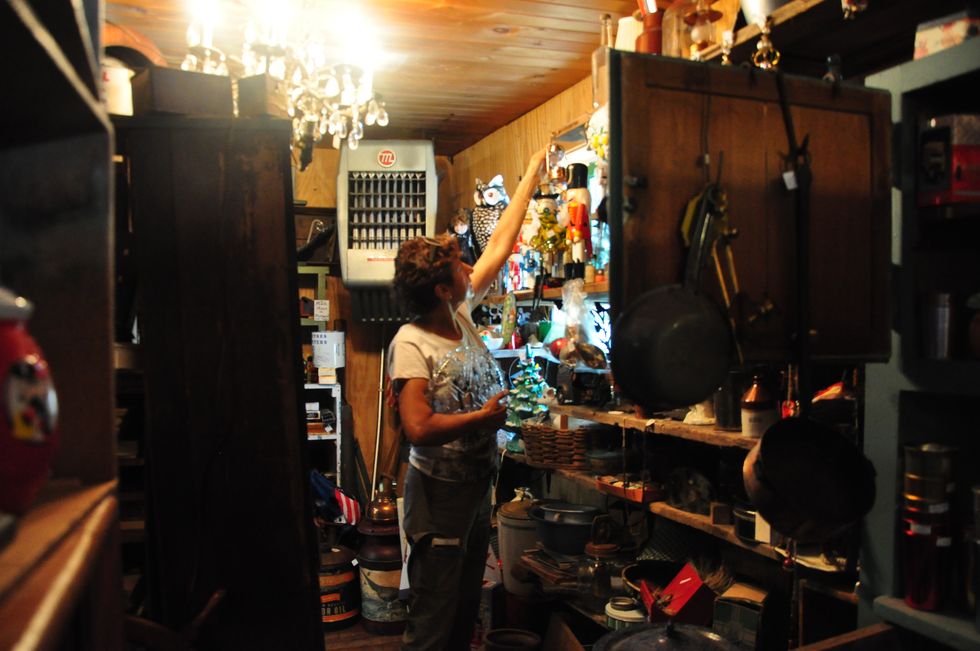In Shakespeare’s Hamlet, there is no one saw. There is either Catholicism or Protestant, innocent or corrupted, madness or sanity, evil or good, to be or not to be… From the start Hamlet was mourning after his father’s death, later on, he sees her father’s ghost. He starts to questioning; if the ghost is an evil soul or telling the truth? His father’s ghost, Hamlet’s Ghost, explains to him how death felt like and he is in purgatory;
“Dooom’d for a certain term to walk the night,
And for the day confined to fast in fires,
Till the foul crimes done in my days of nature
Are burnt and purged away.”
But why a soul tells his own son who kills his father? Revenge is what the soul wants; a restless betrayed soul. He died not in a natural way but the worse way: Killed by his own brother.
“Thus was I, sleeping, by a brother’s hand
Of life, of crown, of queen, at once dispatch’d:
Cut off even in the blossoms of my sin,
Unhousel’d, disappointed, unanel’d,”
He was restless because of the betrayal. And he was stuck in the purgatory because he was sent off from life without heaven’s rituals.
“No reckoning made, but sent to my account”
After what Hamlet witnessed, his father’s soul is in purgatory, he thinks about the meaning of life. He does think about ending his life, to him dying can be a salvation. But that is the problem; he is not certain about the afterlife and away from all this thinking, even though he considering killing himself, he is afraid because suicide is a sin.
“O, that this too too solid flesh would melt
Thaw and resolve itself into a dew!
Or that the Everlasting had not fix’d
His canon ‘gainst self-slaughter! O God! God!”
In Act V, people around Hamlet been killed and after seeing how corrupted the society has become, is the major point for Hamlet. The famous scene where Hamlet finds Yorick’s skull and asks:
“To be, or not to be, that is the question”
A question that been asking from the very start. Questioning the world, existence, after having so much suffered; Hamlet asks himself: Is there really an afterlife, do we continue to exist, or do we stop existing? All of this occurs to Hamlet; void between life and death.
But, as I said, there is no one answer to any of the questions in this play. Even at the end of the play, we do not know if there is an afterlife, what is the meaning of death? And in the graveyard scene, it is amusing in a way, he picks up the skull of his friend and looks at that small thing left him. Is this really it? Is this what waiting for us?
But Ophelia did something Hamlet could never do. Ophelia loved Hamlet but just like in every romantic drama there was an obstacle; her father and brother who believed Hamlet only wants her to use her but she was so sure Hamlet loved her too even though, to Hamlet, she was just a sexual object.
There was a connection between this two characters: Suicide. As I just explained how Hamlet thinks about life and death, killing himself, Ophelia commits it. Now, this can not be a popular opinion because some cases they say her drowning was an accident but to others, she committed suicide. Another question with more than one answers. Now, why we can not know this for certain? Gertrude is the only person who saw Ophelia’s last moments.
“Fell in the weeping brook. Her clothes spread wide;
And, mermaid-like, awhile they bore her up:
Which time she chanted snatches of old tunes;
As one incapable of her own distress,
Or like a creature native and indued
Unto that element: but long it could not be
Till that her garments, heavy with their drink,
Pull'd the poor wretch from her melodious lay
To muddy death.”
Gertrude says it was all an accident but to some, she was only protecting Ophelia’s pride with this exaggerated story because suicide was a sin and she will be known as a sinner. We come back to the religion. From the start, the play gives you all of the clues about the answers, how it is focused on self-nature.
“>Is she to be buried in Christian burial that
wilfully seeks her own salvation?
>I tell thee she is: and therefore make her grave
straight: the crowner hath sat on her, and finds it
Christian burial.
>How can that be, unless she drowned herself in her
own defence?”
Act V Scene II starts with this question: Did she killed herself? A gravedigger who does not know the person he is burying isn’t this an odd question to ask? For the whole Ophelia’s death until this moment even we, the audiences, was sure it was an accident. Why would we think otherwise while there is no suspicion? Here, Shakespeare puts his signature again: Making people question everything they saw in this play. Make them think and see beyond.




















 sunrise
StableDiffusion
sunrise
StableDiffusion
 bonfire friends
StableDiffusion
bonfire friends
StableDiffusion
 sadness
StableDiffusion
sadness
StableDiffusion

 purple skies
StableDiffusion
purple skies
StableDiffusion

 true love
StableDiffusion
true love
StableDiffusion
 My Cheerleader
StableDiffusion
My Cheerleader
StableDiffusion
 womans transformation to happiness and love
StableDiffusion
womans transformation to happiness and love
StableDiffusion
 future life together of adventures
StableDiffusion
future life together of adventures
StableDiffusion





















